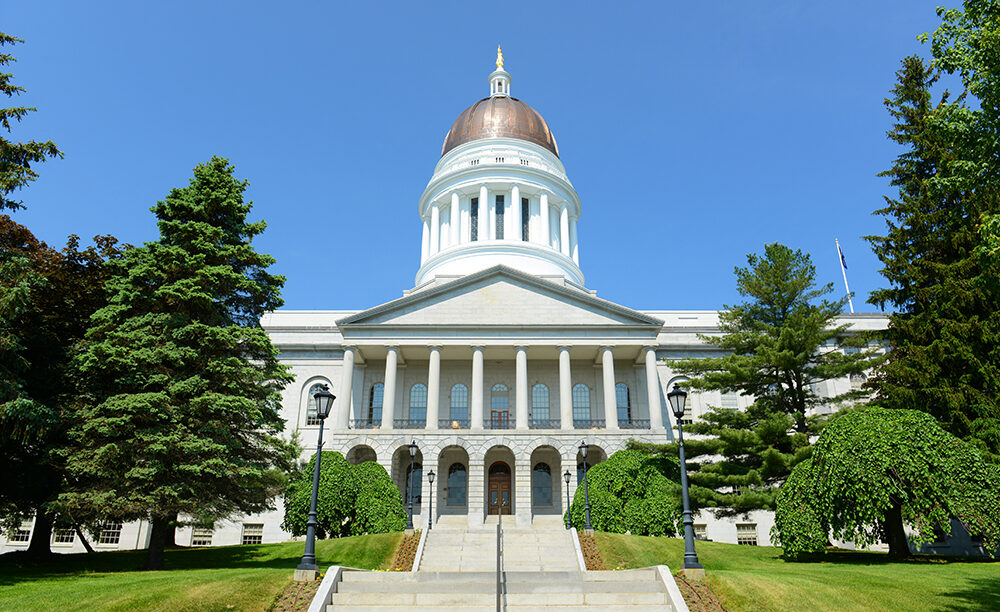Governor Mills recently released her proposed supplementary budget. While her budget contains promising investments in the health and financial security of Maine communities, it also withholds resources that are necessary to meet the many challenges Mainers are facing. Troublingly, the proposed budget also walks back some of Maine’s commitments to immigrants, older Mainers, and child care providers. Reducing support for these people not only increases inequity and leaves more Mainers vulnerable to the high costs of food and medicine, it will also hurt Maine’s economy.
The steps backward that the governor’s proposal takes are all the more concerning due to her decision to stash away $107 million into a reserve fund for future budgeting needs — $107 million on top of the already full rainy day fund balance of nearly $1 billion. While at first glance this may seem like a measured approach, it ignores the pressing challenges that leave many Mainers vulnerable — challenges that will likely only grow more expensive to address over time.
If your electricity is at risk of being shut off, you’re unable to make your housing payments, or you can’t afford the health care you need — realities for many Mainers — you wouldn’t prioritize opening a new savings account over meeting your immediate needs. The Legislature has the opportunity to act in a fiscally prudent manner by passing a budget that rises to the occasion and addresses existing threats to the health, education, and financial security of Maine people and communities.
Maine is in a fiscally resilient position
The Governor’s proposal to store away $107 million for future use is overly cautious, given Maine’s current fiscal situation. The state has been experiencing higher revenue than expected, and general fund revenue is projected to grow by $123 million per year on average between fiscal years 2024 and 2027, with the rate of growth accelerating over time. The economy has remained strong in the years following the COVID-19 pandemic, and the recession economists feared has failed to materialize. The sun is shining, and now is the time to make bold investments in the long-term wellbeing of Maine people.
Even in the event of economic headwinds or uncertainty, Maine’s budget is resilient. The state’s Rainy Day Fund is already at its statutory maximum of nearly one billion dollars. If more revenue is required to meet the needs of Mainers, legislators have revenue-raising options. Some alternatives include:
- Restoring the estate tax to ensure Mainers with wealth pay their fair share.
- Closing costly corporate loopholes and cutting back on tax giveaways, which are largely ineffective at growing the economy and starve the state of resources to invest in Maine communities.
- Bonding for transportation costs rather than funding them through the general fund, which would more equitably spread infrastructure costs over the long term (and would have made available over $100 million in Fiscal Year 2024 alone).
Legislators have many opportunities to build upon the governor’s proposed budget
Maine’s revenue picture is robust, and legislators should not let an artificial scarcity mindset stand between them and meeting the needs of Maine people. By shoring up the systems that support collective health, prosperity, and general wellbeing, legislators can make Maine stronger in the short term and more resilient in the face of eventual economic downturns. There are currently bills to:
- Increase wages for teachers, education support staff, and state employees. These public servants form the backbone of the services we all rely on to make our communities safer, healthier, better educated, and all around more functional. Unfortunately, these positions have been underpaid for years, resulting in ongoing school staffing shortages and a substantial pay gap between state employees and private sector workers. If Maine wants to attract enough workers to support critical services across the state, worker pay will almost certainly need to improve to make these jobs more attractive. LD 2121 would address the issue of the state employee pay gap and LD 974 and LD 1064 would increase pay for education support staff and teachers, respectively.
- Create a state rent relief program. The legislature has already taken bold steps to address rising homelessness by funding a Housing First Program, and the governor included an additional $16 million for emergency housing in her proposed supplemental budget. While these are necessary steps to stem the rising tide of homelessness, they are costly solutions that only help people after they’ve already fallen into homelessness, which can have enormous consequences to people’s long-term health and financial stability. LD 1540 includes an eviction prevention pilot program. Providing assistance to people at risk of eviction is a much more cost effective tool to keep people safely housed, and it would help to address the years-long waitlist for federal rental assistance.
- Support the health of Mainers. The governor’s proposed budget does provide some assistance to the direct care field by increasing reimbursement rates for nursing homes, but this is only one section of the direct care continuum. Providers of home care, assisted living facility care, and community-based services are also struggling to make ends meet and attract enough workers. Until we address direct care holistically, the care shortage will continue to threaten the health of loved ones and the economy. LD 1718 would provide a tuition credit to direct care workers and their families. While this bill would not solve the shortage entirely, it would make these necessary jobs more attractive and help alleviate the shortage across the care continuum, not just one sector.
By giving Mainers the support they need to save for their own rainy days, the state can capitalize on the robust fiscal conditions to create a stronger economy that is even more resilient in the face of headwinds.
The governor’s proposed budget continues progress in some areas but walks back support for vulnerable communities in others
There are certainly things to celebrate in the governor’s proposed supplemental budget, including:
- Continuing efforts to address the affordable housing crisis by further funding affordable housing development ($10 million) and emergency shelter ($16 million).
- Helping Mainers to be healthier and better educated by maintaining the state’s share of public education funding at 55 percent and increasing reimbursement rates for nursing homes struggling to keep their doors open.
- Supporting workers by creating a Wage Recovery Fund to make people whole immediately if their employers have denied them the pay or benefits they’ve earned, while the government pursues the employer to backfill the fund.
While these efforts will make our state stronger in many ways, some initiatives would have the opposite effect by increasing hardship for some of the most vulnerable Mainers, including:
- Rolling back the “hardship exemption” that allows immigrants and asylum seekers to receive food assistance (SNAP) benefits while they are looking for work in the period immediately after they have received their work authorization. Asylum seekers are barred from working for months after their asylum petition has been filed, and the current provision is intended to ensure they don’t face dramatic economic hardship just as they are able to start looking for employment. Taking away access to food will not help them find work faster. It has been repeatedly proven that work requirements for SNAP don’t lead to more people working — it leads to more people who are hungry — and immigrants are already more likely to be working than native-born adults. Punishing refugees and asylum seekers is unjust and hurts our state economy.
- Rolling back the expansion to the Medicare Savings Program passed last year. This expansion provided much-needed assistance to older adults who are struggling to afford their prescription medications. This support in particular would have helped women, Mainers of Color, and LGBTQ+ Mainers who are experiencing financial hardship in retirement due to pervasive economic discrimination throughout their careers. Going back on this policy decision also leaves considerable federal resources off the table. While this decision saves Maine $14 million in direct expenditures, it forfeits roughly $38 million in federal funds.
- Rolling back commitments to child care providers secured in last year’s budget, specifically by proposing to delay implementing the expansion of child care subsidy eligibility to July 1 after having informed providers in January that it would be effective this Spring. The proposal also amends a commitment in last year’s budget which included child care workers with young children in the child care subsidy program, turning this policy into a two-year pilot rather than an ongoing program .
- Restricting the ability of General Assistance to respond to the affordable housing crisis. In the absence of a state rent relief program, Maine’s municipalities are forced to fill the gap by providing critical assistance to people under threat of losing their housing. The Governor’s proposal limits the maximum amount of available support, restricting municipalities’ ability to provide assistance that fully meets residents’ needs.
Maine is at its best when everyone who calls the state home has what they need. We will not make our state, our communities, or our economy stronger by cutting support from people who are struggling to provide for themselves and their families. Maine Center for Economic Policy urges legislators to maintain the governor’s efforts to expand tools and opportunities to more Mainers, build upon those efforts to better meet the challenges facing our economy, and reject proposals that would leave Maine people and communities behind.




